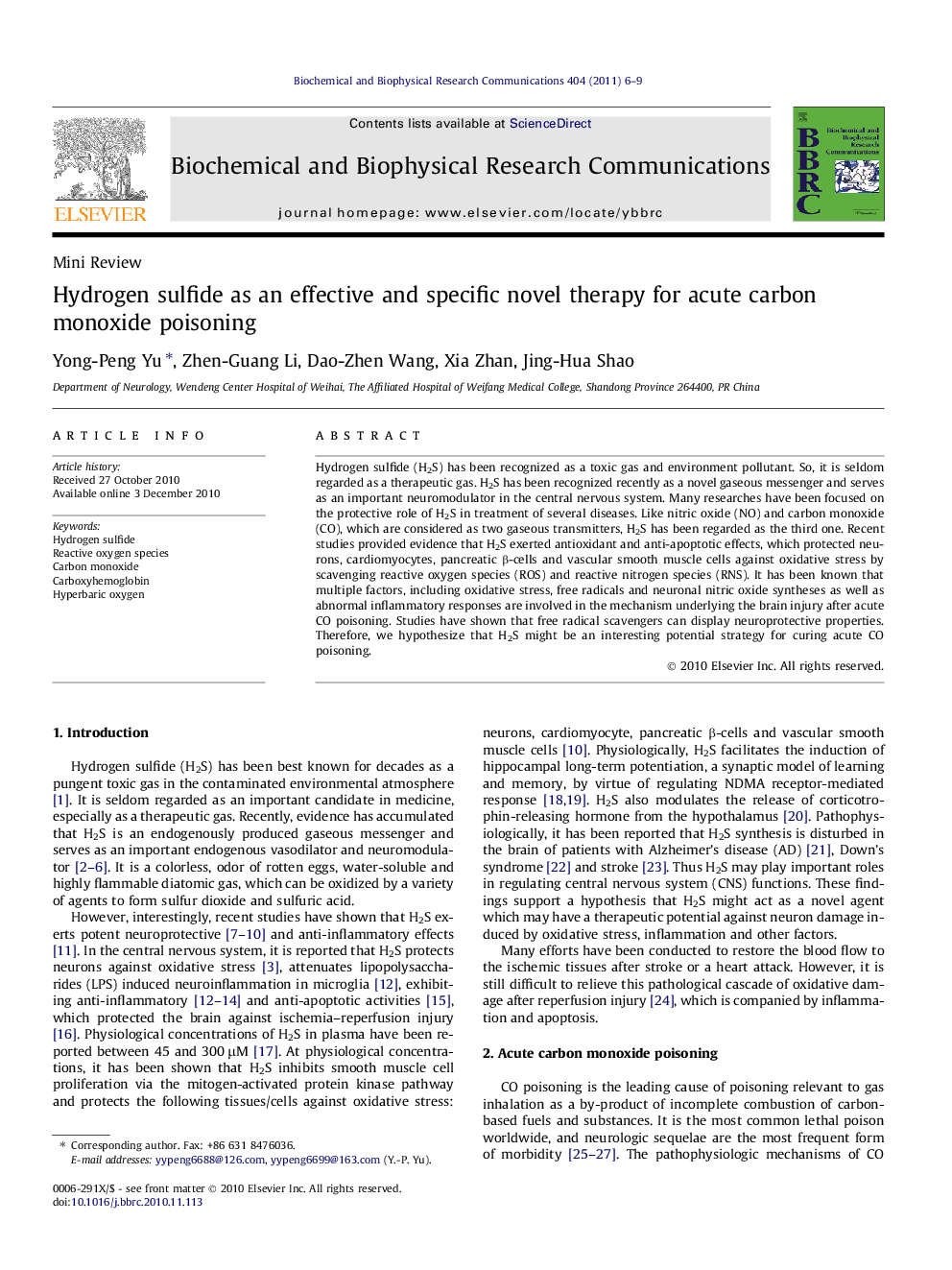| Article ID | Journal | Published Year | Pages | File Type |
|---|---|---|---|---|
| 10764386 | Biochemical and Biophysical Research Communications | 2011 | 4 Pages |
Abstract
⺠Oxidative stress, neuronal apoptosis and necrosis occur over hours to days following carbon monoxide poisoning. ⺠Previous studies have shown that free radical scavengers can display neuroprotective properties. ⺠Hydrogen sulfide (H2S) could protects neurons against oxidative stress, attenuates lipopolysaccharides (LPS) induced neuroinflammation in microglia, exhibited anti-inflammatory and anti-apoptotic activities. ⺠We hypothesize that H2S might be an interesting potential strategy for curing acute carbon monoxide poisoning.
Related Topics
Life Sciences
Biochemistry, Genetics and Molecular Biology
Biochemistry
Authors
Yong-Peng Yu, Zhen-Guang Li, Dao-Zhen Wang, Xia Zhan, Jing-Hua Shao,
